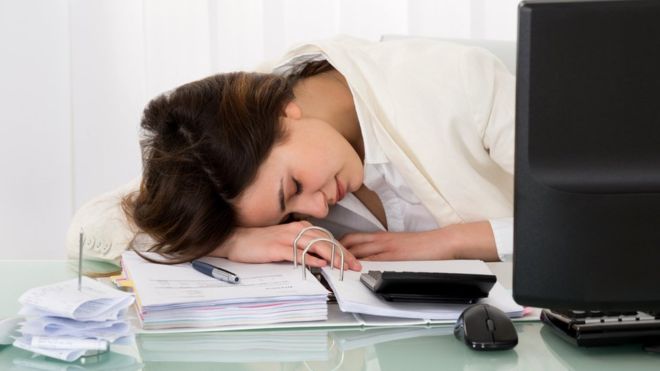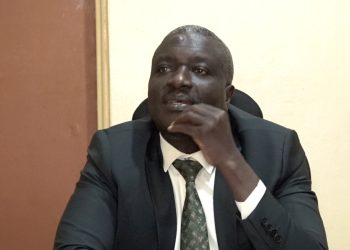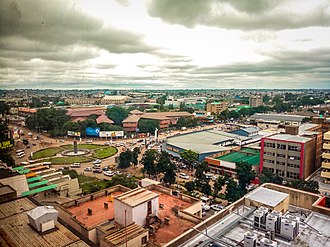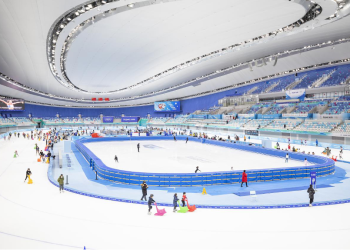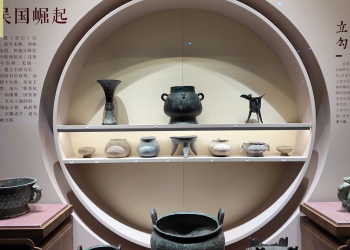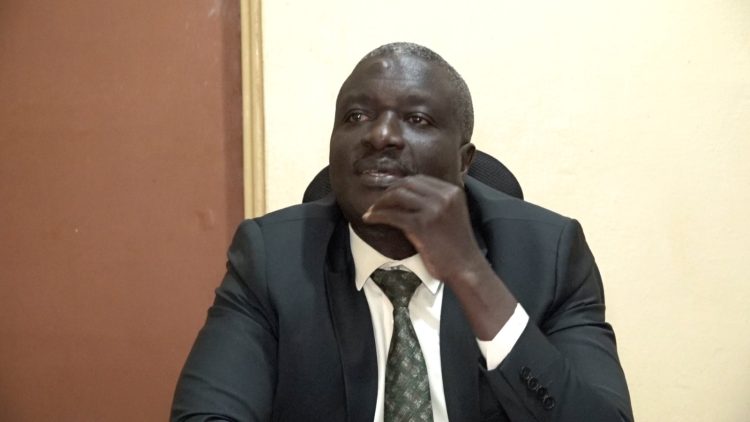It takes real chutzpah to have a bed in your office, and to openly sleep in it during work hours.
Back in the 1990s, Bhim Suwastoyo was a busy reporter for Agence France Presse in its Jakarta bureau in Indonesia.
And he became notorious within the company for sleeping underneath a cupboard behind his desk.
“Whenever somebody from the Hong Kong head office would visit, the first thing they would ask is: ‘Show me your bed,'” he tells me for BBC World Service’s Business Daily programme. “Such a good reputation!”
Bhim explains that this was particularly useful at the height of the 1997 Asian currency crisis, when the Indonesian rupiah lost half its value and the Suharto government collapsed.
He was working all hours covering breaking news. Mobile phones weren’t used widely in Indonesia then, so he caught naps within earshot of his office phone whenever he had a quiet moment.
But he found that even on quiet days a half-hour’s catnap helped. “It gives you more energy for the rest of the day. It’s like starting anew in the morning,” he says.
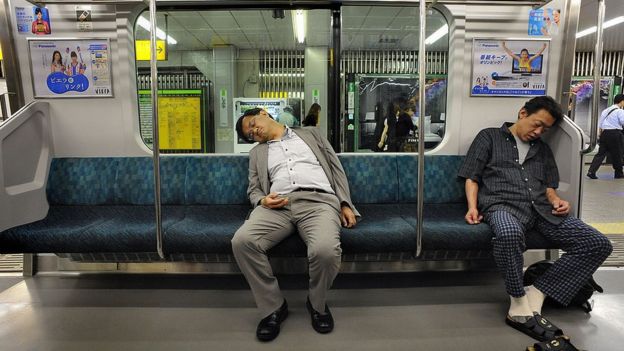
And he’s not the only one. In southern Europe the afternoon nap is of course institutionalised as the siesta and it’s a similar story in China.
Circadian rhythms
In Japan dozing in meetings is apparently a sign of status to show off how hard you work. Some bosses are even said to fake it in order to eavesdrop on indiscreet employees – and the employees fake indiscretions to humour them.
Your body operates according to circadian rhythms – the daily cycle of hormones that govern your body clock.
The main culprit is melatonin. When levels of this chemical are high, you doze off. But when you are exposed to sunlight, your melatonin levels drop and you perk up.
“Sleep serves as the brain’s housekeeper, which helps to clear metabolic waste and toxins from the brain,” explains somnolence academic Natalie Dautovich of the US National Sleep Foundation.
That is why we should all sleep a regular seven to nine hours every night.
Find out more:
How to survive at work: The Business Daily team explores life in the office
Click here for more programme highlights
We know this to be true, so why are most of us really bad at following this advice?
“The more sleep deprived we are, the less accurately we are able to judge the effects it has on our performance,” says Dr Dautovich.
In other words, everyone else in the office can see we’re exhausted but we can’t, because we’re exhausted.

And then there’s the matter of mobile phones. I often lose an hour or two late in the evening, sitting up in bed reading my Twitter feed. Dr Dautovich says it’s a really bad habit.
The problem is that phone screens emit much bluer light than your average light bulb, and that fake daylight tends to lower your melatonin levels and wake you up.
On top of that, your brain comes to associate your bedroom with your mobile, and by extension your office and social life. And that brings on other unhelpful biochemical responses such as the “stress” hormone, cortisol.
So we could all do with a bit more self-discipline – put that phone away and go to bed at a sensible hour.
The best office napping strategy
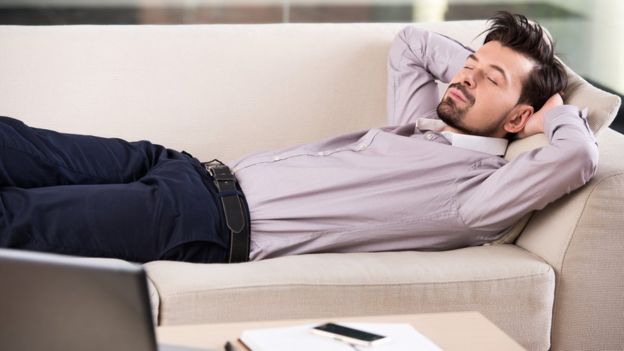
- Get your boss’s permission!
- Sleep during your natural post-lunch dip, usually between 2-4pm
- Find somewhere quiet and secluded (if you sleep on a park bench, you may get woken by the police for vagrancy)
- Limit your nap to less than 20 minutes to avoid the grogginess of deeper sleep, and allow another 10 minutes to recover
- If you need longer, then budget for a full 90-minute sleep cycle
But is there more to keeping your mental edge in the office than just getting a good night’s sleep?
To find out, I visited an office where staying alert can be a matter of life or death.
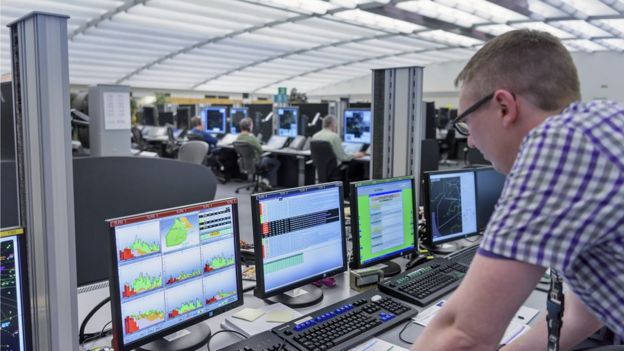
Nats, the UK’s national air traffic control service, has an entire department dedicated to this question.
It is understandable when you consider it is responsible for one of the busiest stretches of airspace in the world, over London.
“One thing we’re very, very aware of is that a controller is more likely to have an incident either when they are very busy, or they’re very quiet,” says Neil May of Nats.
Social interaction
Nats maintains that optimal mental balance between boredom and overload by controlling the number of aircraft each employee manages.
I meet Neil at Nats’ control room in Swanwick, a cavernous space reminiscent of an aircraft hangar that has been designed to minimise distraction.
It is lit 24/7 with fake daylight, and the only sound is the gentle hubbub of hundreds of controllers perched at screens speaking over headsets to the pilots scattered across the skies of southern England.
Staff work in teams of two, not just to check on each other but also because the social interaction helps keep their minds active.
And at least every two hours they are required to take a “30-minute responsibility free break”, says Neil; a retreat to the cafe or a short nap perhaps.
Nats has a proactive attitude towards sleep. Swanwick has a dormitory room where those on night duty are encouraged to get two hours’ kip in the early hours.
“We want them to be at the very top of their game at 5-6am, when the arrivals are starting to come into Heathrow,” says Neil.
It is an attitude that Dr Dautovich would admire. Like Bhim Suwastoyo and those at Nats, she too sings the praises of the afternoon snooze.
“We’re still stuck in this perception of sleep as a luxury,” she says, instead of seeing it as “a positive health behaviour with beneficial outcomes for productivity”.
In other words, perhaps napping at work shouldn’t be treated as a disciplinary offence.
BBC

